Archives
August 29, 2024
If you're looking for an in-depth guide to mastering the topic of condensate management in industrial filtration, then Advanced Filtration has got you covered. We sometimes think of this category of product as a "silent guardian," in that it doesn't get much time in the limelight but is crucially important to making industrial systems work properly. This is because in the maze of networks that make up various industrial systems--from biotech to pharmaceuticals to power generation, where gases are purified and fluids are meticulously filtered, there lies an often-overlooked, yet critical process—condensate management. But where efficiency and safety are indispensable, particularly in industries where gas dehydration and auto drain valves are employed as bulwarks against inefficiency and system failures, condensate management is key. And it's not just about safeguarding equipment; it’s about maintaining the lifeblood of industrial operations—purity, precision, and protection. In this article, the industrial filtration experts at Advanced Filtration are going to into condensate management more deeply. The Essence of Condensate Management Condensate, the byproduct of temperature differentials within industrial systems, can range from a minor inconvenience to a destructive force if mismanaged. This mixture of water, oils, and other contaminants, if left unchecked, can corrode equipment, degrade…
May 31, 2024
Microglass media, or microglass filter media, is a highly specialized form of filtration material predominantly used in various industrial and scientific applications to ensure the purity and quality of fluids. This type of filter media is manufactured from ultra-fine glass fibers bonded together to form a porous structure capable of capturing very small particles with high efficiency. Understanding Microglass Media and Micro-Fiberglass Filters In order to understand how microglass and micro-fiberglass work, we're going to break the subject down into its components: Composition and Manufacture Microglass media is made from borosilicate glass fibers. These fibers are extremely fine, often only a few microns in diameter, and are randomly oriented and bonded together to form a mat. The glass used is resistant to chemical and thermal degradation, which makes microglass media suitable for harsh environments and a variety of chemical processes. Properties The key properties of microglass media include: High Filtration Efficiency: Microglass media can filter out particulates as small as 0.3 microns, making it effective at removing fine particulate matter from air and liquids. High Dirt Holding Capacity: Due to its dense, layered structure, microglass media can hold a significant amount of particulate matter without a substantial loss of flow…
April 9, 2024
Water quality is vital in any industrial facility, ensuring all systems and processes function efficiently. Investing in a water filtration system is the best way to ensure the water is impurities-free. In this article, learn all about industrial water filtration systems with the experts at Advanced Filtration. Water filtration systems facilitate effective removal of contaminants to purify water. So, what exactly are industrial water filtration systems, and why are they important? Let's find out as we discuss how these systems work. What Are Industrial Water Filtration Systems? Industrial water filtration systems refer to special equipment that cleans industrial water. These systems eliminate potentially harmful substances like pollutants and impurities from water. They make the raw water safe, clean, and suitable for industrial applications. Industrial water filtration systems are available in different configurations, sizes, and shapes. Each one comes with unique features and capabilities. These systems use filters made from materials like activated carbon and multi-layered sand. They cleanse water through: Nanofiltration Reverse Osmosis Coarse Filtration UV light Ceramic Filtration Ultrafiltration These processes can clean water using chemical treatment, physical filtration, or both. The most suitable one depends on the impurities you intend to eliminate. Different industries use water with…
February 29, 2024
Advanced Filtration deals with various industries where fluid handling is essential, and the efficient regulation and management of flow rates, pressure, and temperature are paramount. One crucial component that aids in achieving this efficiency is triple-duty valves. This small but mighty piece of equipment comes up time and again when discussing industrial filtration solutions for our clients, so in this blog post, we're going delve into what they are and how they work. We'll also look at their different applications across industries, their significance, the materials of construction, and other important aspects. What is a Triple Duty Valve? So, first things first: what exactly is it? A triple duty valve is a specialized type of valve designed to perform three primary functions within a single unit: balancing, throttling, and shut-off. These valves are engineered to control flow rates, maintain system stability, and ensure optimal performance across various fluid handling systems. How does a Triple Duty Valve Work? Triple duty valves operate based on their unique design, which integrates components for balancing, throttling, and shut-off functions. They typically consist of a globe-style valve body with an integrated balance piston or plug. This design allows for precise control over flow rates while maintaining…
February 28, 2024
Last month, we published an article called "The Advanced Filtration Guide to Heat Exchangers," where we discuss all the ins and outs of heat exchange in industrial applications. Today, we're going to discuss the complementary side of that process, which is all about evaporative coolers and condensers. We here at Advanced Filtration deal with so many types of industrial filtration products and applications, and heating, cooling, and temperature control in general is a big part of that. The topic is big and complicated, so please do not hesitate to give us a call at 732-901-6676 or use the contact form on this page for a free consultation. We love answering questions! What Are Evaporative Coolers and Condensers? An evaporative cooler and a condenser are two distinct components used in different systems, often in the context of cooling processes, but they serve different purposes. Evaporative Cooler An evaporative cooler, also known as a swamp cooler, is a device that cools air through the evaporation of water. It operates on the principle that when water evaporates, it absorbs heat from the surrounding air, thereby cooling it. Evaporative coolers are commonly used in dry climates as they work best in areas with low…
December 27, 2023
Here at Advanced Filtration, we work with a diverse array of industrial filter product, from mist eliminators to Y-strainers to HVAC media filters, and everything in between. You'll find all kinds of literature in our blog about all of these lines we carry, and today we're going to discuss a specific topic: heat exchangers. (more…)

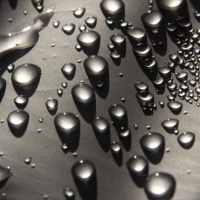
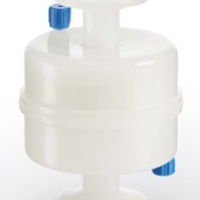
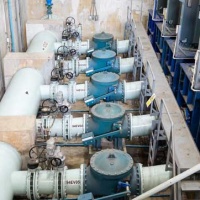
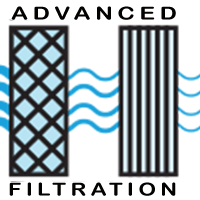

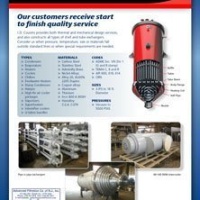
 Advanced Filtration ships throughout the world and offers on site support and service to the New York and Philadelphia metro areas including all of New Jersey, eastern Pennsylvania, southwestern Connecticut and southern New York State.
Advanced Filtration ships throughout the world and offers on site support and service to the New York and Philadelphia metro areas including all of New Jersey, eastern Pennsylvania, southwestern Connecticut and southern New York State.